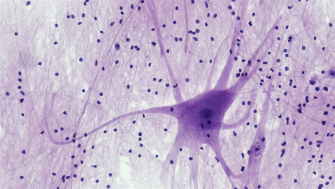Promising new data analysis for Alzheimer’s disease treatment
Last updated: 01 November 2019
You can legally access new medicines, even if they are not approved in your country.
Learn howThis is a summary of an update released by Biogen on October, 22 2019.
Originally developed by Neurimmune, aducanumab is an antibody that targets deposits of amyloid-β protein in the brain. After entering into a partnership with Neurimmune in 2007, Biogen was granted the license to further develop and commercialize aducanumab for the treatment of Alzheimer’s disease.
In March 2019, Biogen discontinued two phase-3 aducanumab trials known as EMERGE and ENGAGE following a pre-specified futility analysis showing insufficient evidence supporting the efficacy of aducanumab in treating the disease. Following the discontinuation of the studies, additional data from these studies became available.
A new analysis of the larger dataset for the EMERGE study suggested significant benefits on measures of primary endpoints, including cognition and function, such as memory, orientation, and language, against the results of previous futility analysis.
After consulting with external advisors and the FDA, Biogen believes that the difference between the results of the new analysis of the larger dataset and the outcome predicted by the futility analysis was driven primarily by patients’ greater exposure to high dose aducanumab. Following discussions with the FDA, Biogen plans to submit a regulatory for aducanumab filing in early 2020 based on the recent results.
Sources:
Biogen, Aducanumab Update
Alzheimer’s News Today, Aducanumab




